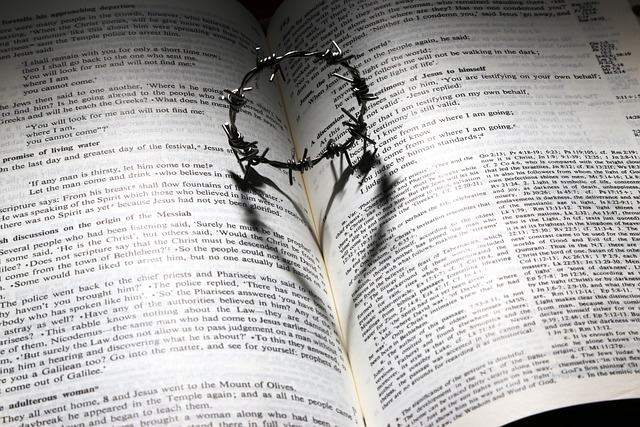Presbyterians and Catholics do not use the exact same Bible. While both denominations recognize the same 27 books of the New Testament, they differ in the inclusion of certain books in the Old Testament. The Catholic Bible includes additional books known as the Deuterocanonical books, which are not found in the Protestant Bible used by Presbyterians.
Table of Contents
Key Differences Between the Presbyterian and Catholic Bibles
Do Presbyterians and Catholics use the same Bible? This is a question that often comes up when discussing the differences between these two Christian denominations. While both Presbyterians and Catholics are followers of Jesus Christ, there are some key differences in their beliefs and practices that extend to the Bible they use.
One of the main differences between the Presbyterian and Catholic Bibles lies in the number of books included. The Catholic Bible contains several additional books known as the Deuterocanonical books, which are not found in the Protestant Bible used by Presbyterians. These books include Tobit, Judith, Wisdom, Sirach, Baruch, and First and Second Maccabees, as well as additional portions of the books of Esther and Daniel. These books are considered canonical by the Catholic Church but are not accepted as such by most Protestant denominations, including Presbyterians.
The inclusion of these additional books in the Catholic Bible can be traced back to the early centuries of Christianity. The Septuagint, a Greek translation of the Hebrew Scriptures, included these books and was widely used by early Christians. However, during the Protestant Reformation in the 16th century, Martin Luther and other reformers questioned the canonicity of these books and ultimately removed them from the Protestant Bible. This decision was based on their belief that these books were not part of the original Hebrew Scriptures and lacked the same level of authority as the rest of the Bible.
Another difference between the Presbyterian and Catholic Bibles is the translation used. While both denominations have multiple translations available, there are some differences in the preferred translations. The Catholic Church has traditionally used the Latin Vulgate translation, which was translated by St. Jerome in the 4th century. This translation became the official Bible of the Catholic Church and was widely used until the Second Vatican Council in the 1960s, when the use of vernacular languages in the liturgy was encouraged. Since then, various translations have been approved for use by Catholics, including the New American Bible and the Revised Standard Version Catholic Edition.
On the other hand, Presbyterians tend to use a variety of translations, including the King James Version, the New International Version, and the English Standard Version, among others. The choice of translation often depends on personal preference and the theological background of the individual Presbyterian church. Some churches may have a preferred translation that is used for worship and study, while others may encourage members to use the translation of their choice.
In conclusion, while Presbyterians and Catholics both follow the teachings of Jesus Christ, there are some key differences in their beliefs and practices that extend to the Bible they use. The Catholic Bible includes several additional books known as the Deuterocanonical books, which are not found in the Protestant Bible used by Presbyterians. Additionally, there are differences in the preferred translations, with the Catholic Church traditionally using the Latin Vulgate and Presbyterians using a variety of translations. Understanding these differences can help foster dialogue and mutual respect between these two Christian denominations.
Understanding the Canon of Scripture in Presbyterian and Catholic Traditions

Have you ever wondered if Presbyterians and Catholics use the same Bible? It’s a common question that arises when comparing different Christian denominations. Understanding the canon of Scripture in Presbyterian and Catholic traditions can shed some light on this topic.
Firstly, let’s define what we mean by the “canon of Scripture.” The canon refers to the collection of books that are considered authoritative and inspired by God. These books form the foundation of Christian belief and practice. While there is a general consensus among Christians about the New Testament canon, there are some differences when it comes to the Old Testament.
In the case of Presbyterians, they adhere to the Protestant canon of Scripture. This canon includes the 39 books of the Old Testament and the 27 books of the New Testament. The Protestant canon was established during the Reformation in the 16th century and is based on the Hebrew Bible for the Old Testament and the Greek manuscripts for the New Testament.
On the other hand, Catholics have a slightly different canon of Scripture. They include not only the 39 books of the Old Testament but also several additional books known as the Deuterocanonical books. These books, which include Tobit, Judith, Wisdom, Sirach, Baruch, and First and Second Maccabees, are not found in the Protestant canon. The Catholic Church considers these books to be part of the inspired Word of God.
So, while Presbyterians and Catholics share the same New Testament, they differ in the Old Testament canon. This discrepancy can be traced back to the early Christian Church and the development of the biblical canon. The Catholic Church, with its roots in the early Christian community, has traditionally included the Deuterocanonical books in its canon. In contrast, the Protestant Reformation rejected these books, considering them to be of lesser authority.
It’s important to note that these differences in the canon of Scripture do not mean that Presbyterians and Catholics have fundamentally different beliefs. Both denominations affirm the central teachings of Christianity, such as the divinity of Jesus Christ, salvation through faith, and the importance of the Bible as God’s Word.
In fact, there is a great deal of overlap in the content of the Old Testament books accepted by both Presbyterians and Catholics. The majority of the Old Testament is shared between the two canons, including books like Genesis, Exodus, Psalms, and Isaiah. It is primarily the inclusion of the Deuterocanonical books that sets the Catholic canon apart.
Ultimately, the question of whether Presbyterians and Catholics use the same Bible depends on how one defines the “same.” While they share a significant portion of the Old Testament, the inclusion of the Deuterocanonical books sets the Catholic canon apart. However, it’s important to remember that these differences in the canon do not undermine the core beliefs and teachings shared by both denominations.
In conclusion, Presbyterians and Catholics do not use the exact same Bible. While they share the same New Testament, there are differences in the Old Testament canon. Presbyterians adhere to the Protestant canon, while Catholics include additional books known as the Deuterocanonical books. However, these differences do not diminish the common ground that both denominations share in their faith and belief in Jesus Christ.
Comparing Biblical Interpretation in Presbyterianism and Catholicism
Do Presbyterians and Catholics use the same Bible? It’s a question that might have crossed your mind at some point. After all, both denominations are rooted in Christianity, so it’s natural to wonder if they share the same sacred text. In this article, we’ll explore the similarities and differences in biblical interpretation between Presbyterians and Catholics.
Let’s start by acknowledging that both Presbyterians and Catholics consider the Bible to be the inspired word of God. They believe that it contains the teachings and instructions for living a faithful life. However, the way they approach and interpret the Bible can differ.
Presbyterians, as part of the Reformed tradition, emphasize the authority of Scripture. They believe that the Bible is the ultimate authority in matters of faith and practice. For Presbyterians, the Bible is seen as a guidebook for understanding God’s will and discerning the truth. They rely on careful study and interpretation of the text, often using historical and cultural context to understand the original meaning of the passages.
Catholics, on the other hand, have a more nuanced approach to biblical interpretation. While they also recognize the authority of Scripture, they also consider tradition and the teaching authority of the Church (known as the Magisterium) as important guides in understanding the Bible. Catholics believe that the Holy Spirit guides the Church in interpreting and applying the teachings of Scripture to contemporary life. This means that the interpretation of the Bible is not solely left to individual believers but is a communal effort guided by the Church.
One key difference between Presbyterians and Catholics is the inclusion of additional books in the Catholic Bible. These books, known as the Deuterocanonical books or the Apocrypha, are not found in the Protestant Bible. The Catholic Church considers these books to be part of the inspired canon, while Protestants, including Presbyterians, do not. This difference in the canon of Scripture can lead to variations in the passages and teachings that are emphasized in worship and study.
Another difference lies in the approach to interpreting the Bible. Presbyterians tend to emphasize a more literal interpretation of the text, focusing on the intended meaning of the original authors. They believe that the Bible is clear and understandable, and that the Holy Spirit works through the text to reveal God’s truth. Catholics, on the other hand, often employ a more allegorical or symbolic approach to interpretation. They believe that the Bible contains multiple layers of meaning and that the Holy Spirit can reveal deeper truths through the text.
Despite these differences, it’s important to note that both Presbyterians and Catholics share a common belief in the centrality of the Bible in their faith. They both seek to live according to the teachings of Scripture and find guidance and inspiration in its pages. While their approaches to interpretation may vary, the goal remains the same – to deepen their relationship with God and live out their faith in the world.
In conclusion, while Presbyterians and Catholics use the same core texts in their Bibles, there are differences in the interpretation and understanding of those texts. Presbyterians emphasize the authority of Scripture and rely on careful study, while Catholics also consider tradition and the teaching authority of the Church. Despite these differences, both denominations share a deep reverence for the Bible and seek to live out its teachings in their daily lives.
Exploring the Historical Relationship Between Presbyterians and Catholics in Bible Usage
Do Presbyterians and Catholics use the same Bible? This is a question that has intrigued many people over the years. While both denominations are Christian and share many beliefs, there are some differences in the way they approach the Bible. In this article, we will explore the historical relationship between Presbyterians and Catholics in Bible usage.
To understand the differences between the two denominations, it is important to first look at their historical backgrounds. The Presbyterian Church traces its roots back to the Protestant Reformation in the 16th century, while the Catholic Church has a much longer history dating back to the time of Jesus Christ. These different historical contexts have shaped the way each denomination views and uses the Bible.
One of the main differences between Presbyterians and Catholics in Bible usage is the number of books included in their respective Bibles. The Catholic Bible contains several additional books known as the Deuterocanonical books, which are not found in the Protestant Bible. These books include Tobit, Judith, Wisdom, Sirach, Baruch, and First and Second Maccabees. Presbyterians, on the other hand, follow the Protestant tradition and do not include these books in their Bible.
Another difference lies in the way the Bible is interpreted and understood. Catholics believe in the authority of the Church and the Pope, who is considered the successor of Saint Peter. They believe that the Church has the authority to interpret the Bible and guide its members in matters of faith and morals. Presbyterians, on the other hand, emphasize the importance of individual interpretation and personal relationship with God. They believe that every believer has the right and responsibility to read and interpret the Bible for themselves.
Despite these differences, it is important to note that both Presbyterians and Catholics share a common belief in the Bible as the inspired Word of God. They both believe that the Bible contains the teachings and instructions for living a faithful Christian life. While they may approach the Bible differently, their ultimate goal is the same – to seek guidance and wisdom from God’s Word.
Over the years, there have been efforts to bridge the gap between Presbyterians and Catholics in Bible usage. In 1994, the Vatican and the Presbyterian Church (USA) signed a historic agreement known as the “Common Agreement on Mutual Recognition of Baptism.” This agreement recognized the validity of each other’s baptism and affirmed the common faith shared by both denominations.
In recent years, there has also been a growing interest in ecumenical dialogue and cooperation between Presbyterians and Catholics. This has led to joint Bible studies, interfaith discussions, and collaborative efforts in social justice and community outreach. These initiatives have helped foster a greater understanding and appreciation for each other’s traditions and practices.
In conclusion, while there are some differences in the way Presbyterians and Catholics approach and use the Bible, they both share a common belief in its importance and authority. The historical relationship between these two denominations has evolved over time, with efforts to bridge the gap and foster greater understanding. As Christians, it is important to focus on the common ground we share and work towards unity and cooperation in our faith journey.
Conclusion
No, Presbyterians and Catholics do not use the same Bible.



